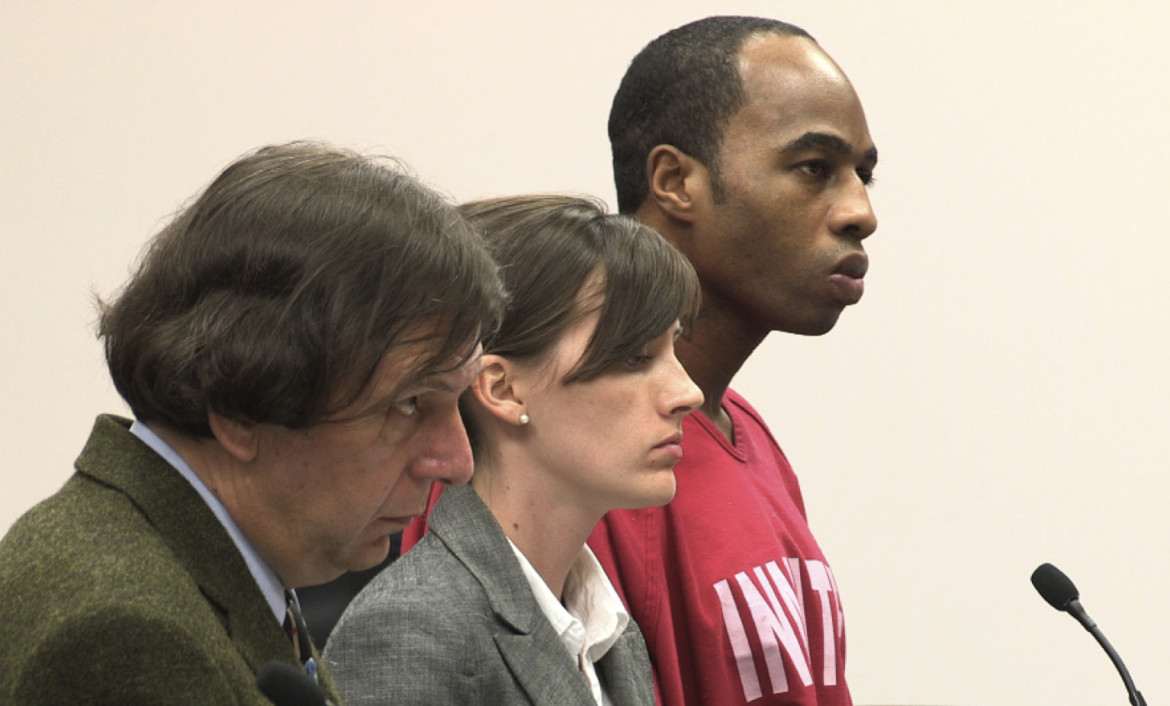WASHINGTON — Last year, documentary audiences first met Kenneth Young, a man sentenced to life in prison in Florida for crimes he committed as a young teenager.
A year later, advocates still are spreading his story, hoping it will help end sentences of juvenile life without parole in communities across the country.
The engagement campaign around the film, “15 to Life: Kenneth’s Story,” is a way to change culture, not just laws, supporters said at a screening of the film on Monday.
The film follows the legal fight of Young, who was sentenced to four consecutive terms of life without the possibility of parole for his role in a series of armed robberies when he was 14 and 15 years old.
The filmmakers have teamed with the Campaign for the Fair Sentencing of Youth to host dozens of community screenings and panel discussions that explore the question of juvenile life without parole, using Young’s story as a jumping-off point.
Young’s lawyer, Paolo Annino, supervising attorney at the Public Interest Law Center in Tallahassee, Fla., said at the panel discussion that he agreed to participate in the documentary because of the way law can follow culture.
In the wake of Supreme Court decisions that have come down against juvenile life without parole sentences, states’ reactions have been mixed, Annino said. Some have moved to abolish the practice, while others have looked for ways to sidestep the rulings.
The mixed reaction is why public attitudes should matter to advocates, because they can help drive legislative changes, Annino said.
“As a society we need to start thinking children are different, and we need to treat them differently for the purposes of sentencing,” he said.
The film’s director, Nadine Pequeneza, said she always envisioned the documentary would be used as a tool for social change. She wants viewers to consider how children are different than adults, the early traumas that many young people in the criminal justice system have faced, and racial and ethnic disparities in sentencing.
[Related: Arkansas Supreme Court Rules Miller v. Alabama Is Retroactive]
In addition to hosting the screenings, the filmmakers are developing a curriculum for teachers who want to show the documentary in their classrooms. They also plan to start a fund to support Young because so many viewers have asked how they can help him.
Jody Kent Lavy, director and national coordinator of the Campaign for the Fair Sentencing of Youth, said the film is an important educational tool alongside efforts to push for legislative changes. The organization lobbies to end the practice of sentencing juveniles to life in prison without the possibility of parole.
“The question that our country is faced with — and that the story of Kenneth amplifies — is how do we as a society want to hold these people accountable?” she said in an interview.
Since the Supreme Court ruled in 2012 that mandatory life without parole sentences for people who were juveniles at the time of the crime are unconstitutional, nine states have abolished juvenile life without parole and three have abolished the practice for some offenses.
The changes come at a time when policymakers and judges are increasingly open to the idea that juvenile offenders should be treated differently because they are still developing and need rehabilitation, Lavy said.
But advocates still have much to do, including making their case to the public, she added.
“I think it’s important to recognize this is a long-term effort, and while there’s momentum, there’s an important role for the film and other efforts,” she said.
More information about the film and engagement campaign is available at 15tolifethefilm.com.
More stories related to this one:
Supreme Court to Weigh Retroactivity of Mandatory JLWOP
Opinion: Year After UN Slammed US on Youth Criminalization, How Are We Doing?
Opinion: 10 Years After Roper, Some Juveniles Still Waiting for Decent Treatment
Plea Deal Frees Prisoner but Prolongs Battle Over JLWOP Retroactivity
Opinion: Mandatory Life without Parole Should Not Be Left up to States

Pingback: Youth Advocates Using Documentary to Sway Public Opinion on JLWOP
My son and his teen friends were part of a federal undercover HIDTA investigation observing and documenting illegal sales of k2 to these kids for close to 2 years. They became addicted,no help was offered and all three are now serving life for a crime committed while stoned out of their minds. Smokeshop owners received less than 6 months for their million dollar operation.